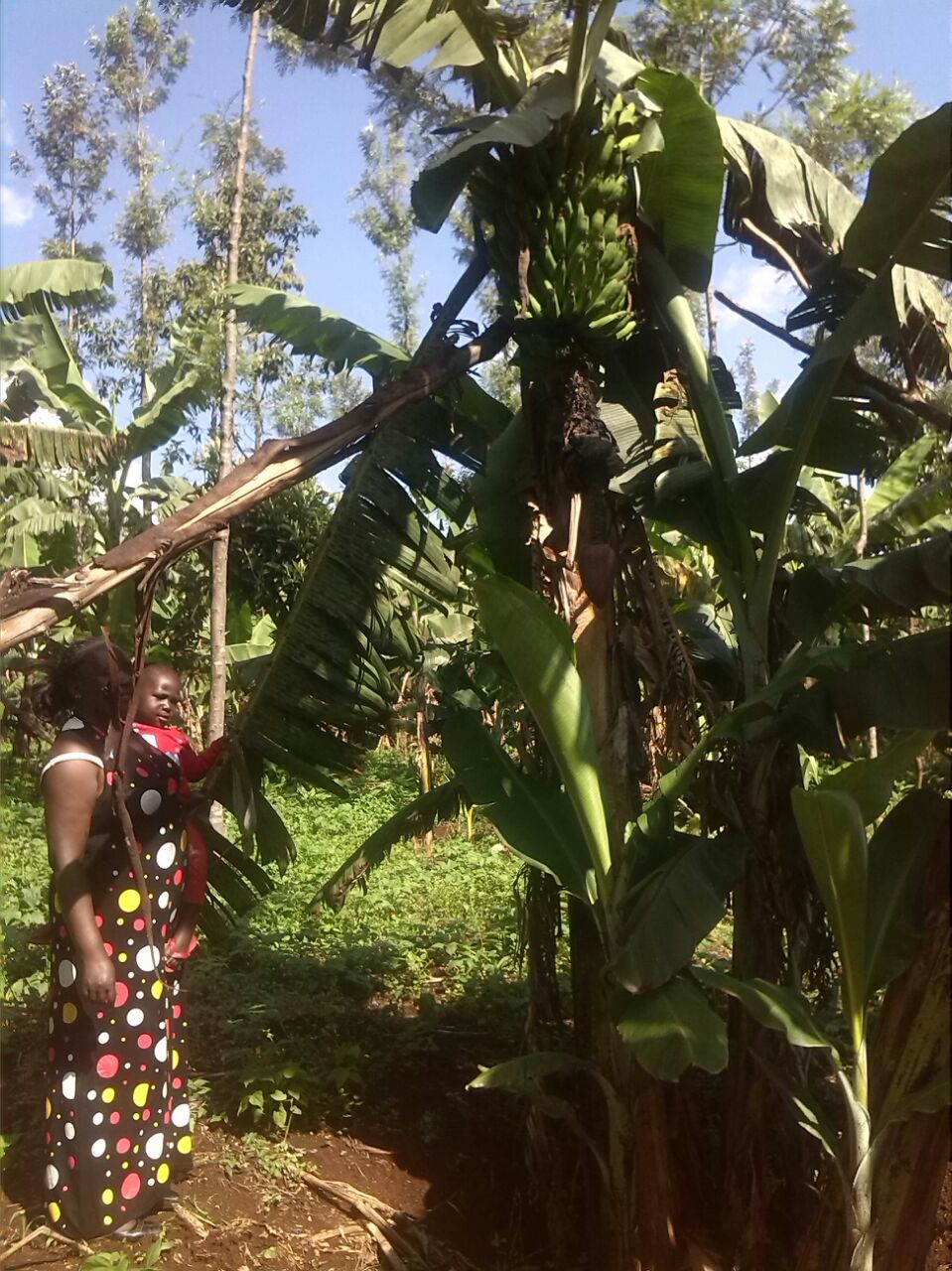 Banana farmers in Nyamira, a county in Western Kenya, are making great savings using neem seeds extracts as opposed to commercial pesticides to fight the black banana weevil.
Banana farmers in Nyamira, a county in Western Kenya, are making great savings using neem seeds extracts as opposed to commercial pesticides to fight the black banana weevil.
Also known as the root borer, the weevil is the most destructive banana insect.
The pest interferes with crop establishment by drilling through the corm, weakening the root system and seriously increasing the risk of toppling. The infestation results in reduction of bunch size, toppling plants, mat dying-out and a shortened plantation life.
With the acquisition costs of nematicides greatly increasing the costs of production, it came as a big relief for Priscillah Ongiri to learn of the superior qualities of neem extracts as a biopesticide against the black banana weevil.
“I learnt of neem’s pesticidal abilities through a radio program and decided to try it because there are months when commercial products were making it difficult to farm bananas profitably,” said Ongiri, who has five acres under the cavendish variety of bananas, and who has successfully shared her knowledge with other banana farmers in her Rigoma village.
Neem extract, Ongiri said, proved a reliable insecticide against the weevil, one that she says has all but eradicated the pest from her plants.
To prepare 10 litres of the extract, one needs 500 grams of neem seed kernels, which are then ground in a mill or crushed using a mortar and pestle. The crushed seed is then mixed with water and allowed to stand in a shaded area for five hours.
The resultant solution is effective for 3-6 days if stored in the dark, and is used by spraying directly onto the plants. One needs about 160 litres of the solution to cover one acre of cropped land. Banana suckers can also be dipped in the solution at planting to reduce attacks on young plants.
Plant biologist Isaac Limo says the neem extract works by changing the feeding patterns and life cycle of the pests reducing both their life spans and reproduction cycles.
“Effects can be noted after about one week, and the product is more effective if applied in the early stages of pest attack,” said Limo.
“The beauty of such botanical pesticides as neem extracts is that they have little environmental impact compared to synthetic products and sometimes have better outcomes,” he added.
Ongiri gets her neem seeds from trees in her farm, with one tree yielding about 7-15Kg of seeds per year, but whenever there is a shortage, she sources them from suppliers in Nakuru at KSh50 per kilogram. By using neem extract instead of synthetic insecticides, she is able to save up to KSh70 in the production of each banana bunch, which she sells at a farmgate price of KSh550.
Bananas are increasingly becoming an important crop in the county as farmers find more commercial benefit in cultivating it over traditional cash crops tea and coffee. One acre of land can support about 5,000 banana plants, and, therefore, any savings on costs of production are desirable for most of the crops farmers.
This is notwithstanding the growing appeal of organically produced foods around the world, which is bound to raise the prices of produce by trend-conscious farmers.
-ENDS
















Comments powered by CComment